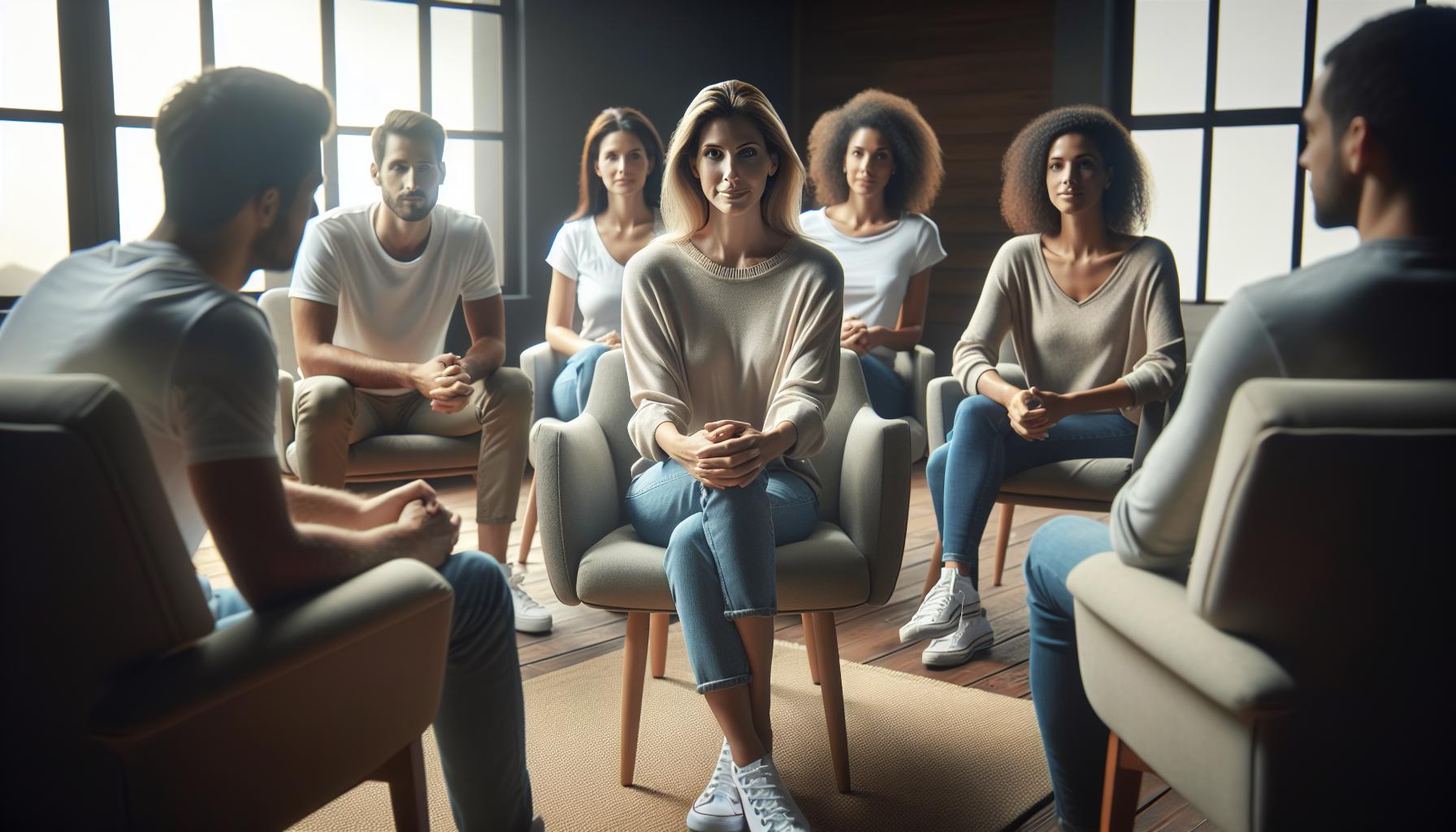Physical Address
304 North Cardinal St.
Dorchester Center, MA 02124
Physical Address
304 North Cardinal St.
Dorchester Center, MA 02124

Navigating the ups and downs of relationships can feel like trying to solve a Rubik’s Cube blindfolded. In Phoenix, where the sun blazes as fiercely as some love stories, relationship counseling offers a lifeline to couples caught in the heat of misunderstandings. Whether it’s communication breakdowns or the occasional “who left the toilet seat up” debate, professional guidance can help turn the chaos into harmony.
Imagine sitting down with a skilled counselor who knows the ins and outs of love, like a relationship whisperer. They’ll help couples untangle their emotions and find common ground, all while keeping the process light-hearted and engaging. With the right support, even the toughest challenges can lead to stronger bonds and a few laughs along the way. So, if love feels more like a wrestling match than a dance, it might be time to consider relationship counseling in Phoenix.
Relationship counseling focuses on improving communication and resolving conflicts between partners. Skilled counselors employ various techniques to assist couples in understanding each other’s perspectives. In Phoenix, counselors address common issues such as trust, intimacy, and emotional disconnect.
Counselors create a safe environment for couples to express their emotions. By guiding discussions, they help partners articulate feelings without fear of judgment. Techniques like active listening play a crucial role in fostering mutual understanding.
Exploring the underlying dynamics of relationships becomes essential during counseling sessions. Assessing patterns of behavior helps couples identify triggers and develop healthier responses. Through skill-building exercises, partners learn to navigate difficult conversations more effectively.
Counseling offers different formats, including individual sessions and couple-focused workshops. Many Phoenix counselors provide tailored approaches based on specific relationship needs. Flexibility in approaches increases the likelihood of positive outcomes for couples.
Progress may unfold at varying paces. Each couple’s journey in counseling is unique, reflecting their personal histories and relationship experiences. Celebrating small victories can promote motivation and renewed commitment between partners.
Professional guidance often transforms misunderstandings into opportunities for growth. Couples often leave sessions equipped with practical tools for resolving future conflicts. Humor can emerge in sessions, allowing partners to bond over shared struggles.
Counseling serves as a proactive measure, enhancing relationships before problems escalate. Engaging with a counselor can lead to an enriched understanding of one another and strengthened emotional ties. Ultimately, relationship counseling empowers couples to foster deeper connections and navigate life’s challenges together.

Understanding the significance of relationship counseling can greatly impact couples and individuals. Counseling serves as a vital tool for overcoming relational challenges and enhancing personal growth.
Improving communication lies at the heart of relationship counseling. Couples learn effective techniques for expressing their feelings and needs. Resolving conflicts becomes manageable when partners grasp each other’s perspectives. Increased intimacy and trust emerge from open dialogue and shared experiences. Couples walk away with practical tools that promote healthy interactions. Celebrating progress together fosters a stronger bond and encourages ongoing commitment.
Exploration of personal feelings and emotions enhances individual well-being. Individual sessions allow clients to confront personal issues that affect relationships. Understanding behavior patterns helps individuals recognize triggers that lead to misunderstandings. Developing self-awareness paves the way for healthier responses in relational dynamics. Clients gain confidence through personal growth, leading to improved relationship interactions. Enhanced emotional regulation contributes to overall mental health and stability.

Various forms of relationship counseling exist in Phoenix, each designed to address specific needs. Couples can benefit from specialized therapy focused on their unique dynamics.
Couples therapy emphasizes communication and conflict resolution. Trained professionals guide partners in exploring their emotions, enabling a deeper understanding of each other’s perspectives. Techniques such as role-playing can help illustrate different viewpoints. Trust rebuilding, enhancing emotional intimacy, and developing active listening skills form core components of this therapy. Sessions often include structured exercises to practice new skills in a safe environment. Ultimately, this therapy empowers couples to navigate challenges together.
Family therapy targets more complex dynamics involving multiple family members. It facilitates open dialogue between parents, children, and other relatives. This counseling format often addresses issues stemming from miscommunication, differing parenting styles, and emotional distress. Counselors create a structured environment where all family members can share their feelings freely. By focusing on the family as a unit, participants learn to resolve conflicts and strengthen relationships. Improvement in communication skills benefits the entire family system.
Individual counseling focuses on personal issues affecting relationships. Through one-on-one sessions, individuals explore their feelings, thought patterns, and behaviors. Self-awareness increases as clients confront their emotional triggers and relational challenges. Counselors often utilize various therapeutic techniques to guide individuals toward healthier responses. Progress in personal counseling enhances individuals’ ability to contribute positively to their relationships. This transformation can create a ripple effect, improving communication and connection with partners or family members.
Selecting the right counselor significantly impacts relationship counseling outcomes. Couples in Phoenix should focus on credentials and techniques used.
Evaluate counselors based on their educational background and licensure. Look for professionals with a master’s degree in counseling or social work. Experience in relationship counseling adds value; seek those with several years of practice. Moreover, check for credentials like Licensed Professional Counselor (LPC) or Licensed Marriage and Family Therapist (LMFT). Researching counselors’ specialized training in dealing with issues like trust and intimacy ensures a better fit. Client reviews and testimonials also provide insights into effectiveness.
Investigate the approaches counselors use during therapy. Cognitive Behavioral Therapy (CBT) often proves effective for improving communication. Emotionally Focused Therapy (EFT) helps couples reconnect emotionally through structured sessions. Explore whether the counselor practices collaborative techniques, emphasizing mutual understanding. Understanding their methods allows for informed decisions based on individual relationship needs. Additionally, inquire about tailored interventions that address specific concerns such as conflict resolution and emotional disconnect. Meeting with potential counselors can help gauge comfort levels and compatibility, ultimately enhancing the counseling experience.
Relationship counseling in Phoenix offers couples the chance to rebuild their connections and enhance their emotional well-being. By working with skilled counselors, couples can address their unique challenges in a supportive environment. This journey not only improves communication but also fosters intimacy and trust.
As couples learn to navigate their emotions and understand each other better, they equip themselves with practical tools for future interactions. The transformative power of counseling can turn obstacles into opportunities for growth. Embracing this process can lead to deeper connections and a more resilient partnership.